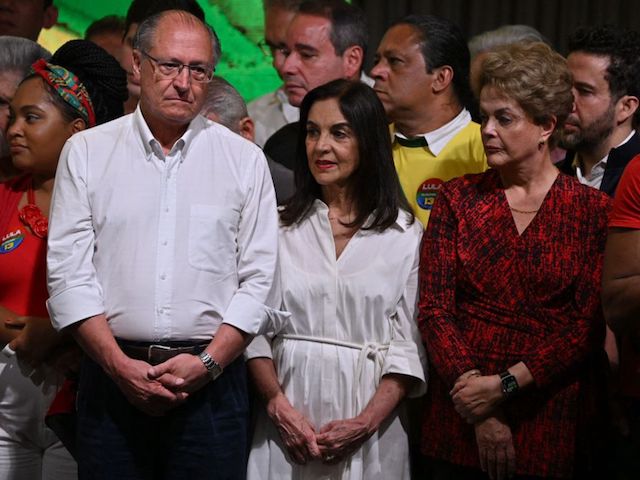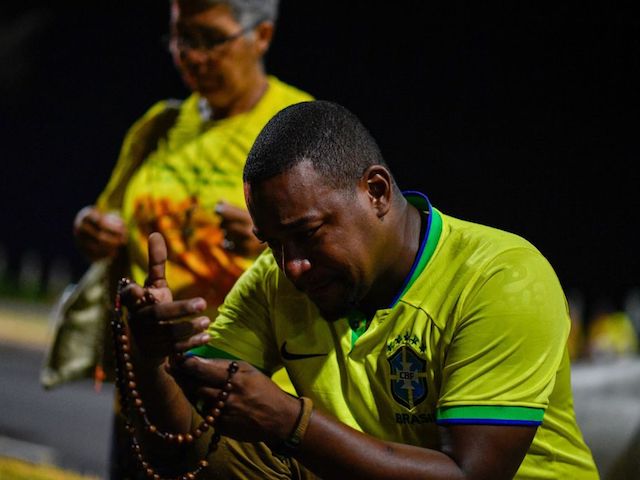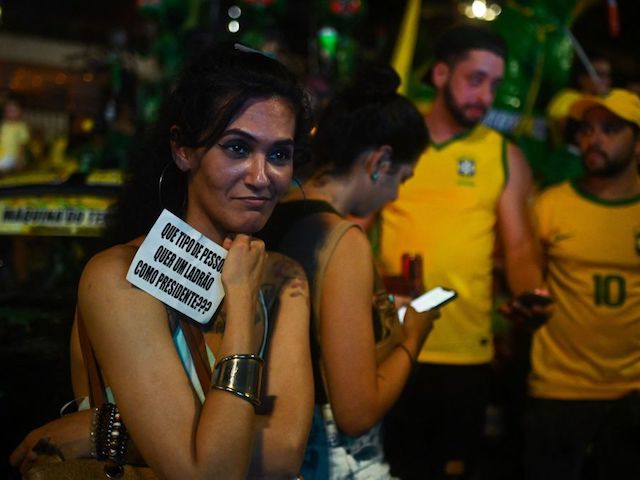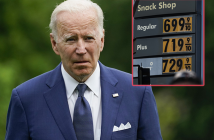The top electoral authority in Brazil announced on Sunday evening that 77-year-old hardline socialist Luiz Inácio Lula da Silva, once convicted and sentenced to over two decades in prison for alleged corruption, had won this year’s presidential election against incumbent conservative Jair Bolsonaro.
In his first words as president-elect for a third term, Lula vowed to “reconstruct the very soul of this nation” away from the small government, pro-freedom ideals of the Bolsonaro administration.
Little more than a percentage point separated Lula, who served as president previously from 2003 to 2011, from Bolsonaro, as of 10 p.m. ET, representing about 2 million votes in a nation of 214 million people. National newspaper of record O Globo described the results as the closest election since 1989, when Lula narrowly lost to Fernando Collor de Mello, who was impeached and ousted from office over corruption allegations in 1992. Collor later supported the impeachment ouster of Lula’s protege, Dilma Rousseff, in 2016, also prompted by corruption allegations – kicking off the series of events that ultimately led to Bolsonaro’s 2018 victory.

Elected vice president for the leftist Workers Party (PT) Geraldo Alckmin (L) and former President (2011-2016) Dilma Rousseff (R) attend the victory speech of elected president Luiz Inacio Lula da Silva in Sao Paulo, Brazil, on October 30, 2022. (NELSON ALMEIDA/AFP via Getty Images)
With 99 percent of votes counted, Lula received 50.9 percent of the vote, or about 60.3 million votes. Bolsonaro received 49.1 percent, or 58.2 million votes. The top election authority the Superior Electoral Tribunal (TSE), counted 20.58 percent (32.2 million votes) were “abstentions,” meaning the voter did not choose a candidate at all.
Lula’s high turnout in the northeast – the country’s poorest region and his traditional stronghold, made it possible to defeat Bolsonaro despite the conservative triumphing in the nation’s largest metropolises of Sao Paulo and Rio de Janeiro. Bolsonaro enjoyed his highest support in the Venezuelan border region of Roraima, now heavily populated with socialist refugees, and in the inland state of Rondonia.
While the number of abstentions was far higher than the number of votes dividing the two candidates, the percentage of voters who opted to choose neither candidate dropped slightly from 20.95 percent in the first round, which pitted Lula and Bolsonaro against a larger slate of candidates, to 20.56 percent, an unprecedented result in Brazilian history suggesting the candidates managed to move undecided voters off of the sidelines.
Bolsonaro has yet to comment publicly; rumors in major Brazilian newspapers claim that he is rejecting requests to visit or speak with him. Brazilian news network Jovem Pan reported that sources within Brazil’s presidential palace “did not have an expectation” that Bolsonaro would speak on Sunday. Lula notably did not mention receiving any concession call from Bolsonaro in his victory speech.

A supporter of Brazilian President and re-election candidate Jair Bolsonaro prays a rosary in Rio de Janeiro, Brazil, on October 30, 2022. (ANDRE BORGES/AFP via Getty Images)

A supporter of Brazilian President and re-election candidate Jair Bolsonaro holds a sign reading, “What kind of person wants a thief for a president???”, a reference to Lula da Silva’s corruption conviction, in Rio de Janeiro, Brazil, on October 30, 2022. (ANDRE BORGES/AFP via Getty Images)
Lula delivered an address in which he accused his opponents of trying to “bury [him]alive” but emphasized unity moving forward.
“Today, we are telling the world that Brazil is back,” Lula told a crowd of supporters on Sunday night. “That Brazil is too great to be relegated to that sad role of global pariah. … it is necessary to reconstruct the very soul of this country. To recover generosity, solidarity, respect for differences and love for one another.”
Continue reading: Breitbart.com






Leave a Reply